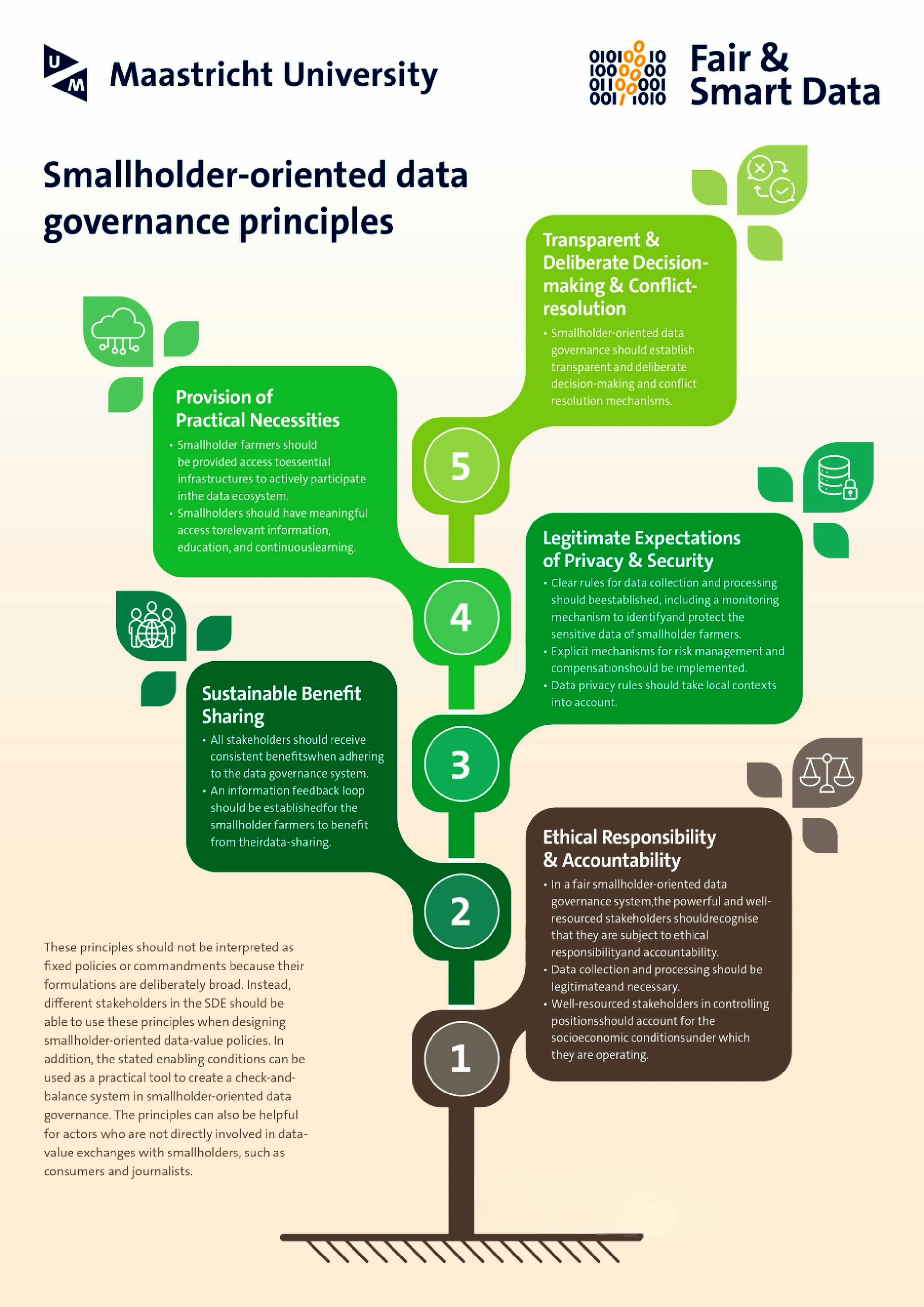FSD's New Report on Smallholder-oriented Data Governance
We are glad to unveil our Smallholder-oriented Data Governance report. We aim through this report to stir debate and drive consensus among the stakeholders in the data ecosystem of smallholder farmers to lay the foundation for a fair and efficient data governance system.
Download the report here.
In the report, we define the smallholder data ecosystem as comprising multiple stakeholders with asymmetric power, knowledge, and resource access levels. These stakeholders should handle smallholder farmers’ data responsibly and transparently to empower and avoid harm. Smallholder-oriented data governance requires the more powerful and well-resourced stakeholders to commit to fair treatment and compensation of smallholder farmers.
The report defines smallholder farmers, informed consent, and a fair data ecosystem. Further, it presents a set of principles that a data governance system should have to ensure fair and sustainable benefit sharing from smallholders' data. The principles should not be interpreted as fixed policies or commandments because their formulations are deliberately broad. Instead, different stakeholders in the smallholder data ecosystem should be able to use these principles when designing smallholder-oriented data-value policies. In addition, the enabling conditions of the principles can be used as a practical tool to create a check-and-balance system in smallholder-oriented data governance. The principles can also be helpful for actors who are not directly involved in data-value exchanges with smallholders, such as consumers and journalists.

Also read
-
Flour, family, and forward thinking: the evolution of Hinkel Bäckerei
In the heart of Düsseldorf, the comforting aroma of freshly baked bread has drifted through the streets for more than 130 years. Since its founding in 1891, Hinkel Bäckerei has evolved from a small neighborhood bakery into a cherished local institution.
-
Contribute to a Voice for Children in Conflict Areas
Dr Marieke Hopman and Guleid Jama are launching a new research project on the role of children in peacebuilding in conflict areas.
-
Administrative integration through agency governance The role of Frontex, the EUAA and Europol
PhD thesis by Aida Halilovic